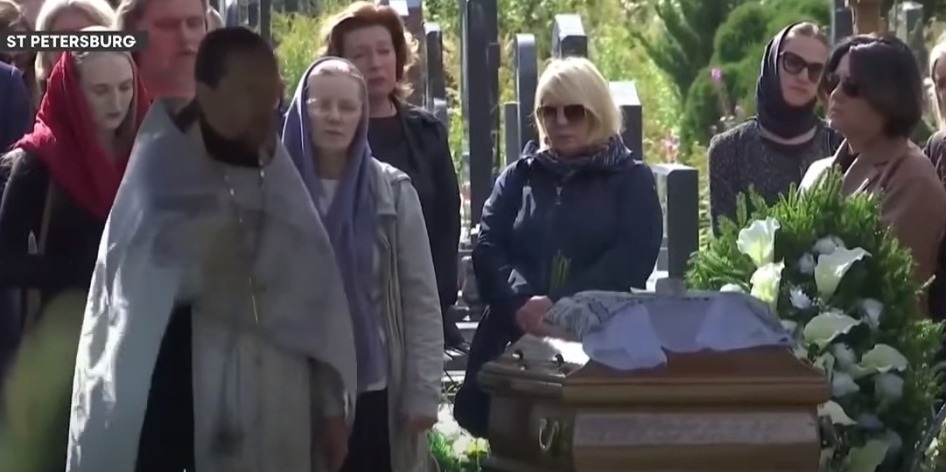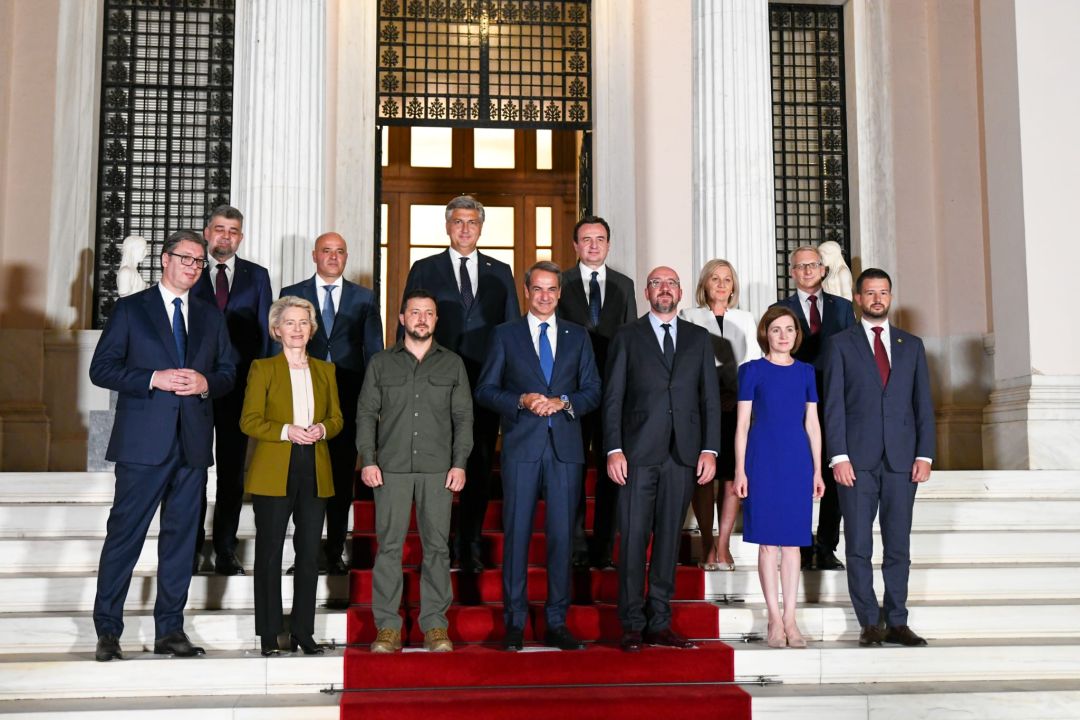Is he alive or did he really get killed in the plane crash on 23 August? This is the main public dilemma after the series of news and (dis)information related to the crash of Yevgeny Prigozhin’s company plane, in which he was flying at the time of the crash, at least according to the official lists and information published by the Russian Government. The problem, however, is that hardly anybody believes in the information coming from Moscow, as far as the legendary founder of the mercenary Wagner Group is concerned, writes Truthmeter.mk.
Under the content-sharing agreement between Truthmeter.mk and Meta.mk, we republish the text below:
On the 23rd of August, in the afternoon at local time, in the Tver Region in Russia, somewhere between Moscow and Sankt Petersburg, a business plane crashed, with several high officials of the mercenary Wagner Group, including the founder of the group, Yevgeny Prigozhin, as was officially confirmed soon after.
Although the identity of the killed passengers cannot be confirmed by independent sources, this news marked August as the most controversial news that brought about numerous speculations and disinformation narratives from several parties, that were regularly and intensively disseminated by the Macedonian language media outlets. What can be pointed out as facts in this event is that the plane type “Embraer Legacy” was indeed owned by a company that is a daughter of the Wagner Group; that 10 persons, out of whom 3 people were crewmembers, were in the plane and that in the last 30 seconds, the plane showed no signs of flight irregularities and then suddenly it began to descend.
While it took two days for the Russian side to deny the thesis disseminated by various Western sources that Prigozhin was murdered (which was done by the spokesman of the Kremlin, Dmitry Peskov), American military representatives claimed that they believed that Prigozhin was murdered, although they had no confirmation that the plane was struck with a surface-to-air or air-to-air missile.
On the day of the accident, the German Foreign Minister, Annalena Baerbock, asked for refrainment from speculations about the death of Prigozhin, while France the same day announced that there were “reasonable suspicions” about the crash of the plane. In general, the EU’s position was that it would be difficult to confirm the news that Prigozhin was dead, regardless of the fact that, for example, British intelligence claimed that it knew who was responsible for sabotaging the plane.
Putin expressed condolences and sorrow
The Russian authorities right after the accident came with details: whose plane crashed, the manifest of the ten passengers, including Prigozhin, as well as details about the scope of the plane crash investigation. Russian President Vladimir Putin, without commenting on the speculations, on the 24th of August, expressed his condolences to the families of the victims and said a few appropriate words about Prigozhin. Two days later – on 26th August – by decree he demanded the mercenary groups, including the Wagner Group, to swear to loyalty to the Russian Federation.
Some of the speculations that sill circulate include the possibility that Prigozhin is actually not dead, which corresponds with the EU narrative from 24 August that the news cannot be confirmed. Hence, on 27th August, a piece of news was shared in the Macedonian language media area – that a regional analyst from the Balkans pointed out the possibility that there is a scenario and an agreement between Putin and Prigozhin for staging his death. That same day, 27th August, a poll in Russia commissioned by Sunday Times was published, in which only 8 percent of the respondents said they believed that Putin was responsible for the accident. However, the fact that 70 percent see Prigozhin as a war hero from Ukraine clearly indicates that disinformation related to the plane crash will continue to appear in the future.

Therefore, although on 29 August the media reported on the planned funeral of Prigozhin, the dilemma whether the burial of Prigozhin was also staged remains, as well as the actual presence of Prigozhin in the plane, as widely speculated.
The root of the disinformation related to Yevgeny Prigozhin lies in the event from June, when in just 24 hours a rebellion against the Kremlin and led by Prigozhin broke out and oddly ended. Indeed, it would be enough to just read the speculations and the news from the last day of August to see, crystal clear, that the (dis)information about the destiny of Prigozhin will continue to fill the media area.
Drone war intensified
The first day of August started with a Ukrainian drone attack on Moscow. In fact, throughout August, the drone war intensified on both sides, and the month ended with attacks on northern Russia, on Pskov airport.
In the attack at the beginning of the month (01.08.2023), as specified by Russian sources, a high-rise building was hit by a Ukrainian drone and the same building was also a target of a Ukrainian drone two days previously. According to RIA Novosti, several government agencies were located in the building under attack.
Russian air defense downed “several” unmanned aerial vehicles that were targeting Moscow region, said the Mayor of the capital city of Moscow, Sergey Sobyanin, “Guardian” reported.
Marine drones were also activated оn the second day of August. The Ukrainian Armed Forces apparently tried to attack Russian merchant ships in the Southwestern part of the Black Sea with unmanned boats, stated the Russian Ministry of Defense for RIA Novosti.
On 3rd August, the spokesperson of the Russian Foreign Affairs Ministry, Maria Zakharova called these drone attacks terrorist acts and said that Ukraine is also compromising the US with such attacks.
By carrying out terrorist attacks on civilian infrastructure, Ukrainian President, Volodymyr Zelenskyy compromised America and is blackmailing the White House with demands for even bigger “aid”, Zakharova said.
The same vocabulary – about terrorist attacks – was used once again by Russia on 21/22 August when the sky above Moscow was closed for hours due to the onset of Ukrainian drones in the late evening and early morning hours. Remarkably, Moscow wasn’t the only target of those attacks, as Russian military airports and at least one strategic bomber of the Russian Air Force were also targeted.
During the whole of August, drone attacks were quite frequent and they were attributed to both warring sides. But while Moscow spoke of the Russian drone attacks as normal means and war tactics, every drone attack by the Ukrainian Army, on both Ukrainian and Russian territory, was marked by the representatives and media from Moscow as an “act of terrorism”.
What was new, and it happened on 30th August, was that Russia suffered a drone attack in the northern part of the country, i.e. Pskov airport, close to the border with Latvia and Estonia, was hit and four big airplanes for personnel transportation or for reconnaissance purposes, type Il-76, suffered damages. Russia’s response to this Ukrainian “terrorist act” was a fierce combined attack on Kyiv (with drones and missiles), when several civilians lost their lives.

UN called Russia to stop attacking civilians
On 19th August, Macedonian language media outlets reported that seven persons, including a six-year-old child, were killed when a Russian missile hit a theatre in the northern Ukrainian town Chernihiv, informed the authorities. 15 children were among the 129 wounded.
The attack was executed only a day after a Ukrainian drone hit a commercial building in the center of Moscow. The Kremlin also named this attack “terrorist”.
Attacks directed against civilian premises are strictly forbidden, according to international humanitarian law. That must stop, appealed the humanitarian coordinator of the UN for Ukraine, Denise Brown.
Most of the news related to this event can be accessed on the link here.
Ukraine to surrender territories – ”a feeler” or not, Medvedev surfaced again
A statement by the Chief of the Office of NATO Secretary General, Stian Jennsen from 15th August that Ukraine can become a NATO member provided it agrees to surrender territories to Russia, thereby marking the end of the conflict, caused a series of speculations and statements in favor of the Russian disinfo narrative that, in such circumstances, even the capital city Kyiv would have to be surrendered and the chair moved to Lviv (position of Dmitry Medvedev). This news and NATO statements and responses from 16th and 17th August, including the disinformation narrative from Russia via Medvedev, can be accessed on links to the Macedonian language media outlets here.
On 22nd August, one of the most zealous Russian propagandists, former President Medvedev threatened Europe, yet again – this time because two European countries announced that they would give Ukraine F16 fighter jets.
Deputy President of the Security Council of the Russian Federation, Medvedev, warned Europeans not to “play with planes” when commenting the statement of the German Foreign Minister, Baerbock, who called the decision of the Netherlands and Denmark to transfer F16 fighter jets to Ukraine “a good day for Ukraine and Europe”. The news on this Russian disinformation narrative was published by several Macedonian language media outlets.
Other disinformation related to the Russian aggression in Ukraine disseminating Russian false narratives on social networks can be accessed in the “Fact-checks” section of Truthmeter. Some disinformation refers to the ancestry of Ukrainian President Volodymyr Zelenskyy, about alleged abuse of surrogate mothers in Ukraine, about organ-trafficking in the country, as well as about the change of the calendar of the Ukrainian Orthodox Church as, allegedly, connected with the Nazi ideology of the Church and country etc.
BGNES and Serbian interests in North Macedonia
On 27th August, the Bulgarian news agency BGNES published an article warning that Serbia officially got involved in the campaign about the amendment of the Constitution of North Macedonia. The catalyst for such an article were two media products previously published in Serbia, specifically, an article and a text on Serbian public broadcaster RTS which was republished by the Politika newspaper from Belgrade, for which BGNES claims that they are official media outlets of the Serbian state policy.
The article was republished by the Macedonian language media. What is interesting, though, is that the Macedonian media –those which have correspondents in Belgrade – previously didn’t republish the article by RTS, and the following article in “Politika”. In practice, this means that the Macedonian media public read about the Serbian malignant media content through a Bulgarian media outlet.
The day before, BGNES published an interview with a historian and – as referred to, international analyst – Kiril Iliev, under the headline: ”Bulgaria must unite with the West against Serbian aggression on the Balkans”, where Serbian interest throughout the entire Balkans is also mentioned.

According to Iliev, Serbia, apparently, wanted to destabilize the Balkans and get rid of all opportunities for the countries to develop normal relations, which could, allegedly, be exemplified by the Bulgarian-Macedonian relations. Regarding the policies in North Macedonia, Iliev claims that politicians proved short-sighted, viewing things only in relation to elections. These positions of Iliev were republished by only two media outlets in North Macedonia.
Kovachevski – Kurti, fierce discussion or Vuchic’s bluff?
Quoting a statement of the Serbian President, Aleksandar Vuchic given on 22 August after the informal meeting/dinner in Athens of Western Balkan leaders and EU representatives upon the occasion of the 20th anniversary of the Thessaloniki Agenda for the Western Balkans, the Macedonian language media outlets published on 23rd and 24th August that somewhat of a misunderstanding or high-tone dialogue occurred between the Macedonian Prime Minister Dimitar Kovachevski and the Prime Minister of Kosovo, Albin Kurti. The reason for that was, apparently, Kurti’s behavior during his unofficial visit of Skopje and Tetovo, hosted by the mayors of Tetovo and Cair and leaders of other bigger and smaller Albanian opposition parties.

Kovachevski neither denied nor confirmed the news, specifying that the conversion was a regular one for a Prime Minister of a NATO member and for the prime ministers of neighboring countries with excellent relations. He also added that the dynamics of individual statements and individual acts cannot dictate the main discourse of good neighborly relations and their integration within the EU. At the end, it remained unclear whether such an event of this type actually occurred or Serbian President, who at the same time obviously talked to Kovachevski regarding the disputable statement of the Serbian Defense Minister, decided to “handle” a bit the Kovachevski-Kurti discussion.
In any case, this statement of Vuchic was extensively disseminated in both Serbian and Macedonian media, causing an avalanche of reactions and disinformation analyzed by only a few of the Macedonian language media such as Deutsche Welle, for example.





















![Young people in a three-day-workshop learned about data visualization [Gallery]](https://meta.mk/wp-content/uploads/2023/12/obuka-za-vizuelizacija-na-podatoci-vo-dekemvri-2023--100x70.jpg)




